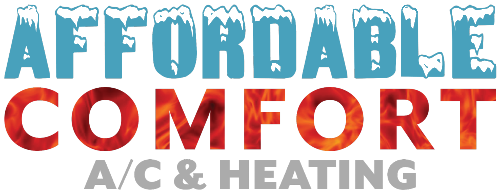Tuned for Comfort: How HVAC Maintenance Maximizes Performance
By addressing wear and fine-tuning components, HVAC maintenance transforms ordinary systems into high-performing assets.
An HVAC system is the backbone of any home or business, providing year-round comfort and maintaining indoor air quality. Routine upkeep plays a critical role in keeping the system running efficiently and effectively. Professional HVAC tune-ups offer a proactive approach to optimizing performance, reducing energy costs, and extending the lifespan of the system. By addressing wear and fine-tuning components, HVAC maintenance transforms ordinary systems into high-performing assets.
Restoring Efficiency With Routine Care
Over time, dirt, dust, and debris can gather on HVAC components, reducing efficiency and forcing the system to work harder. Dirty coils, clogged filters, and obstructed airflow contribute to higher energy consumption and decreased performance. Routine tune-ups target these issues, cleaning and servicing key parts to restore the system’s efficiency.
Technicians clean condenser and evaporator coils, replace or clean air filters, and inspect ductwork for blockages or leaks. These steps improve airflow and allow the system to maintain indoor comfort without unnecessary strain. Professional HVAC tune-ups help lower energy bills and enhance system reliability, making them a cost-effective investment.
Enhancing Comfort With Proper Calibration
An HVAC system must deliver consistent heating and cooling to create a comfortable indoor environment. Poor calibration of thermostats, uneven airflow, or improperly balanced ducts can lead to temperature fluctuations and hot or cold spots throughout the space. Regular maintenance addresses these challenges, fine-tuning the system to achieve even distribution of conditioned air.
During a tune-up, technicians calibrate thermostats, inspect airflow settings, and adjust dampers as needed. These adjustments enhance the system’s ability to maintain desired temperatures consistently, improving overall comfort. Professional HVAC tune-ups create an environment where occupants can enjoy stable and even heating or cooling throughout the year.
Reducing Wear On Components
The mechanical components of an HVAC system, such as motors, fans, and compressors, experience wear over time. Lack of maintenance can accelerate this wear, leading to frequent breakdowns and costly repairs. Regular tune-ups focus on reducing friction, tightening connections, and replacing worn parts to minimize strain on the system.
Technicians lubricate moving parts, inspect belts and pulleys for signs of wear, and guarantee proper alignment of components. These preventive measures help avoid unnecessary damage and extend the lifespan of critical system elements. Professional HVAC tune-ups protect the system from avoidable wear, reducing repair costs and downtime.
Improving Indoor Air Quality
Indoor air quality directly affects health and comfort, particularly for people with allergies or respiratory problems. HVAC systems play a key role in filtering out dust, allergens, and other pollutants from indoor spaces. However, poorly maintained systems can circulate these particles, compromising air quality.
Routine upkeep includes cleaning or replacing air filters, inspecting ventilation systems, and guaranteeing proper humidity control. These steps improve the system’s ability to deliver clean, healthy air while preventing the buildup of pollutants. Professional HVAC tune-ups support better indoor air quality, creating a healthier environment for occupants.
Preventing Costly Breakdowns
Small issues within an HVAC system can quickly escalate into major problems if left unaddressed. For example, a refrigerant leak or a loose electrical connection may seem minor but can lead to compressor failure or system shutdowns. Regular maintenance identifies and resolves these problems early, preventing unexpected breakdowns.
Technicians conducting tune-ups perform comprehensive inspections to detect potential issues. They test safety controls, inspect electrical connections, and check refrigerant levels to confirm the system operates as intended. Professional HVAC tune-ups reduce the risk of emergency repairs and provide peace of mind that the system is ready to handle daily demands.
Maximizing Energy Efficiency
Energy efficiency is a cornerstone of HVAC performance, directly impacting both operating costs and environmental sustainability. A well-maintained system uses less energy to achieve the same results, reducing utility bills and the carbon footprint of heating and cooling operations.
Professional tune-ups focus on optimizing energy efficiency by addressing factors such as airflow restrictions, dirty components, and improper calibration. Technicians measure efficiency metrics, clean system parts, and recommend upgrades or adjustments to further enhance performance. These measures improve energy savings and align with long-term sustainability goals.
Protecting Manufacturer Warranties
Most HVAC systems come with manufacturer warranties that cover repairs or replacement parts under specific conditions. Routine maintenance by certified professionals is often a requirement to maintain warranty coverage. Skipping regular tune-ups or performing unapproved repairs can void the warranty, leaving the system owner responsible for repair costs.
Professional HVAC tune-ups include detailed documentation of services performed, supporting compliance with warranty requirements. Partnering with a trusted technician protects the investment in the system and preserves warranty benefits, reducing financial risks associated with repairs.
Supporting Seasonal Performance
Seasonal changes place different demands on an HVAC system, making timely maintenance essential. Preparing the system for summer cooling or winter heating guarantees optimal performance during peak usage periods. Seasonal tune-ups include tasks such as cleaning condenser coils, checking heating elements, and adjusting thermostat settings to meet the demands of the upcoming season.
These adjustments improve the system’s ability to handle extreme temperatures without overworking. Seasonal maintenance also reduces the likelihood of breakdowns during critical times, keeping the system reliable when it is needed most.
Increasing Return On Investment
An HVAC system represents a significant financial investment, and regular maintenance maximizes its value. By improving efficiency, extending lifespan, and reducing repair costs, professional HVAC tune-ups offer a high return on investment. Systems that operate efficiently and reliably over their intended lifespan provide greater savings and comfort compared to neglected systems.
Professional HVAC tune-ups create a reliable and high-performing system that enhances comfort, lowers energy bills, and avoids costly repairs. Regular maintenance delivers long-term value by keeping systems tuned for comfort and efficiency, making it an essential part of any HVAC care plan.

